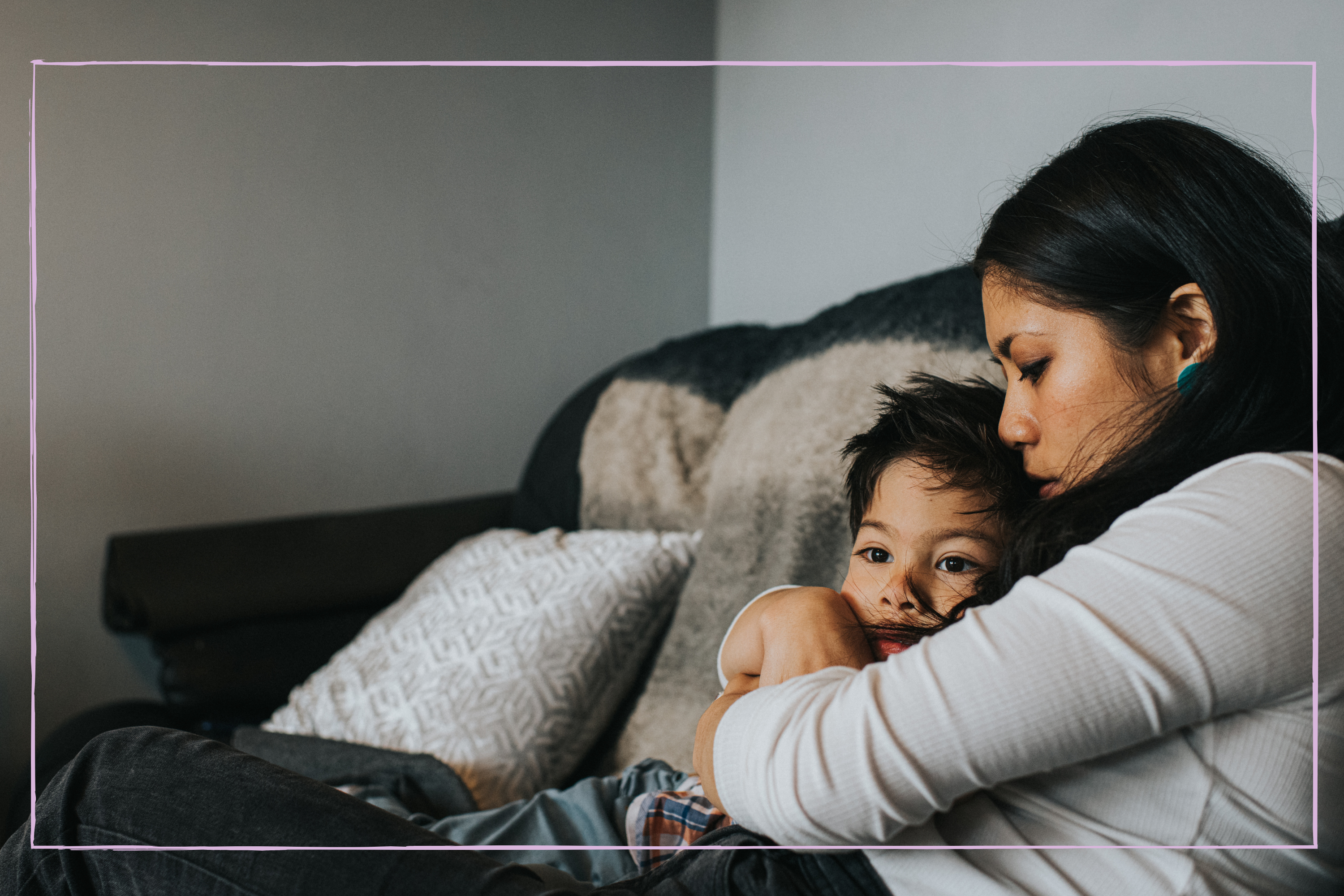Are you a 'plastic wrap' parent? Here are 3 things to be aware of if you use this parenting style
Ever heard of plastic wrap parenting? It’s sort of like helicopter parenting’s cousin – here's what you need to know


Parenting advice, hot topics, best buys and family finance tips delivered straight to your inbox.
You are now subscribed
Your newsletter sign-up was successful
Paying close attention to your child’s every need, jumping in to make all of their decisions or even struggling to leave your child alone with your partner? You might be a plastic wrap parent.
From tiger to permissive, there are a plethora of parenting styles to choose from these days, and while there’s no one-size-fits-all, some are more effective in helping kids grow into happy and well-adjusted adults.
As a parent, you do everything in your power to protect your child from harm or face challenges, but there’s a fine line between being protective and shielding them from any sort of adversity altogether.
Much like helicopter parents (being over vigilant and heavily involved by hovering over their child’s every move), plastic wrap parenting is characterised by similar behaviours, where the parents excessively protect their children from experiencing any difficulties or challenges, essentially, wrapping them in plastic to shield them from harm – hence the name.
While we totally get that you want to do everything to keep your child safe, experts have suggested that there are some negative effects of this approach that you'll want to be aware of: it could hinder a child’s ability to develop resilience, problem-solving skills and independence. Children raised in this way also may struggle with coping mechanisms, taking risks and decision-making later in life, as they may not have the opportunities to learn from failure or adversity.

3 side effects of plastic wrap parenting
- Dependence and anxiety: Overprotected children become overly dependent on their parents for decision-making and problem-solving, leading to anxiety when faced with their own challenges. In fact, a study published in Emerging Adulthood looked at how parents' controlling behaviours affect their kids' independence as they grow up and the researchers found that when parents are really controlling, especially during early adolescence, their kids tend to rely on them more later on. It's not just about the mum or dad doing it either, as both can have an effect. Basically, being too controlling when your kids are younger might backfire and make them more dependent on you when they're older. They may also struggle with anxiety when attempting to navigate the complexities of adult life without constant parental guidance.
- Lack of resilience and coping skills: Being shielded from failure and adversity, overprotected children may lack resilience and coping skills. Without the experience of overcoming obstacles, children may struggle to cope with the inevitable challenges of adulthood and may be ill-equipped to handle rejection, criticism or failure. A study published in Frontiers in Psychology looked into how different parenting styles affect the mental health of Chinese teenagers and it turns out that the way parents treat their kids influences how they teens feel about themselves and how flexible they are mentally. For example, when parents are warm and supportive, it boosts the teens' self-esteem, but if parents are rejecting or too overprotective, it can make them less resilient.
- Limited social and emotional development: The limited social and emotional development can impact their ongoing relationships and wellbeing. They may have difficulty forming meaningful connections in the future, stand up for themselves or adapt to new social environments.
There are many reasons why parents choose to parent this way, such as a lack of trust, past experiences, generational trauma, cultural or societal norms and the pressure to succeed.
Stopping these overprotective behaviours can be tricky, so go easy on yourself if you want to stop the cycle. Validate your feelings first and understand that it’s natural to want to keep your child safe, while acknowledging the importance of allowing them to grow and learn through experiences.
Parenting advice, hot topics, best buys and family finance tips delivered straight to your inbox.
Encourage and support your child in taking on age-appropriate responsibilities, such as chores around the house or even letting them stay at home on their own for an hour or two. Start with small tasks and gradually increase independence as they show you they can handle it.
Communication is key, too. Create a supportive environment where they feel comfortable expressing their thoughts and feelings – and listening without judgement will earn you so many parenting points. You’re definitely not alone in this, and we know your overprotective nature comes from a place of love, so seek support from other parents, family members or friends who could provide valuable insights and encouragement.
By approaching the process of letting go with empathy and understanding, you can gradually empower your child to navigate the world with confidence and independence.
In other parenting news, a paediatrician reveals 3 crucial parenting rules she follows around her house and a millennial mum has shared what her tween says are ‘old people names'.

From building healthy family relationships to self-care tips for mums and parenting trends - Daniella also covers postnatal workouts and exercises for kids. After gaining a Print Journalism BA Hons degree and NCTJ Diploma in Journalism at Nottingham Trent University, Daniella started writing for Health & Wellbeing and co-hosted the Walk to Wellbeing podcast. She has also written for Stylist, Natural Health, The Sun UK and Fit & Well. In her free time, Daniella loves to travel, try out new fitness classes and cook for family and friends.